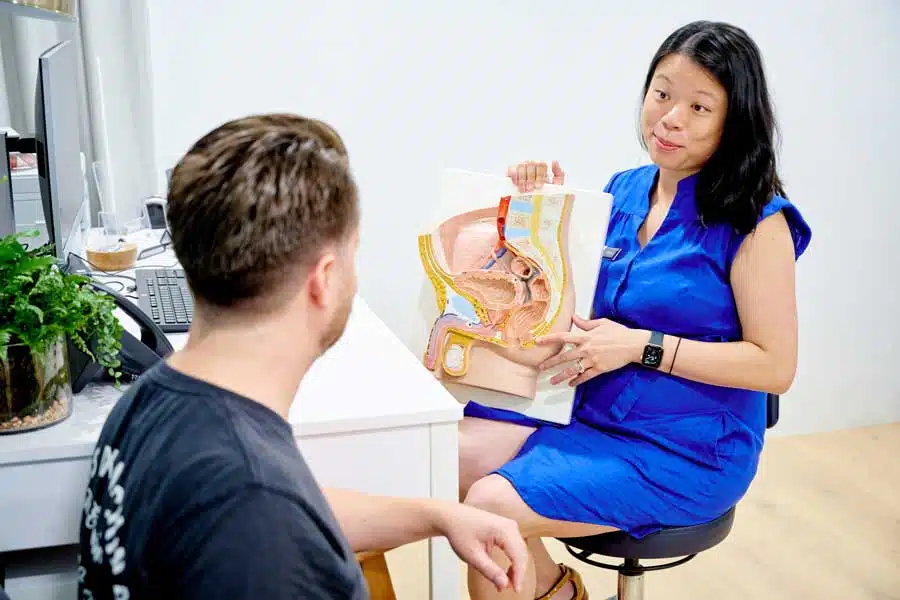IBS or Irritable Bowel Syndrome is a collection of symptoms that occur together, repeatedly and include many symptoms of the gastrointestinal tract. IBS is a functional gut disorder and is now considered a disorder of the gut-brain axis meaning there appears to be some dysfunction between the way the brain, nervous system and gastrointestinal tract communicate.
Facts about IBS:
- 9-23% of the population globally is thought to suffer IBS
- IBS mainly occurs between the ages of 15-65, however can occur at any age
- The exact cause of IBS is unknown but it is thought to do with a disturbance in the way the gut, brain and nervous system all interact
- Being a functional gastrointestinal disorder IBS doesn’t cause changes to the bowel tissues and are no visible signs of damage to the digestive tract in those with IBS
- Women are twice as likely to have IBS than men
- There is no “cure” for IBS
- The symptoms of IBS vary greatly but include abdominal cramping and pain, bloating, gas, diarrhoea, constipation and mucous in the stool.
- Stress and anxiety often make gut symptoms worse in IBS
- Management of IBS can involve dietary intervention, gut microbiota manipulation with probiotics or an-tibiotics, other treatments involve peppermint oil as well as psychotherapy and hypnotherapy.
Diagnosis IBS
IBS is typically diagnosed after exclusion of other, more sinister causes of symptoms. For example be-fore an IBS diagnosis Coeliac Disease, Inflammatory Bowel Disease, Cancers or other organic causes of symptoms must be ruled out. A diagnosis is then usually made based on the patients history and physi-cal examination. The Rome IV Criteria is typically used for diagnosis and is shown below: (**NOTE: IBS can only be diagnosed by a medical professional**)
Rome IV Criteria for Diagnosing IBS*:
Recurrent abdominal pain, on average, at least 1 day/week in the last 3 months, associated with two or more of the following criteria:
- Related to defecation
- Associated with a change in frequency of stool
- Associated with a change in form (appearance) of stool.
*Criteria fulfilled for the last 3 months with symptom onset at least 6 months before diagnosis.
You just described my life – HELP!
Do all these symptoms sound a lot like what is going on for you? Don’t worry as you will now know you aren’t alone. IBS is incredibly common and fortunately there are many things we can do to improve your symptoms and quality of life, including lifestyle modification – changing the way you eat, move and even use the toilet, dietary intervention – looking at what might be causing gastrointestinal upset for you, as well as the all important stress management. If you think you have IBS, get in contact with your GP or a good dietitian with a special interest in IBS.
References
1. Saha. (2014). Irritable bowel syndrome: Pathogenesis, diagnosis, treatment, and evidence-based medicine. World J Gastroenterol. 2014 Jun 14;20(22):6759–6773. PMCID: PMC4051916.
2. Schoenfeld. (2016). Advances in IBS 2016: A Review of Current and Emerging Data. Gastroenterol Hepatol (N Y). 2016 Aug;12(8 Suppl 3):1–11. PMCID: PMC5210026.
3. Weaver et al. (2017). Irritable Bowel Syndrome: And evidence-based review of new diagnostic cri-teria and treatment recommendations. AJN. 2017 June;117(6): 48–55. doi: 10.1097/01.NAJ.0000520253.57459.01.

